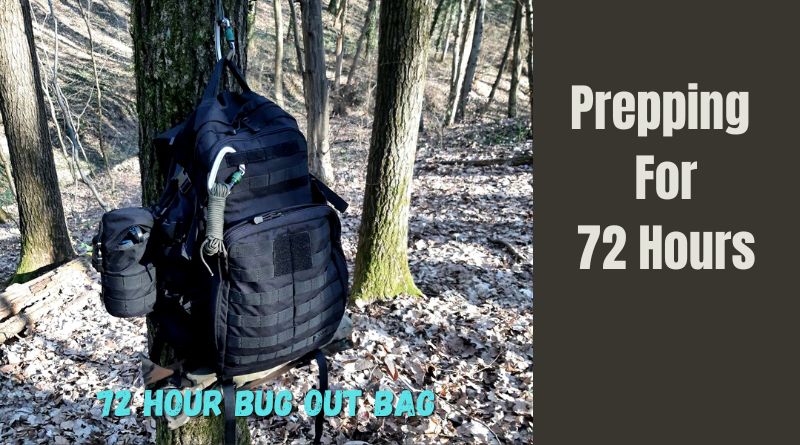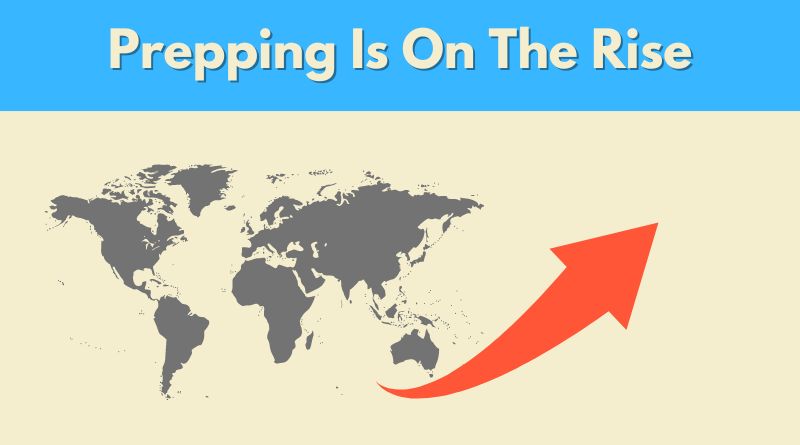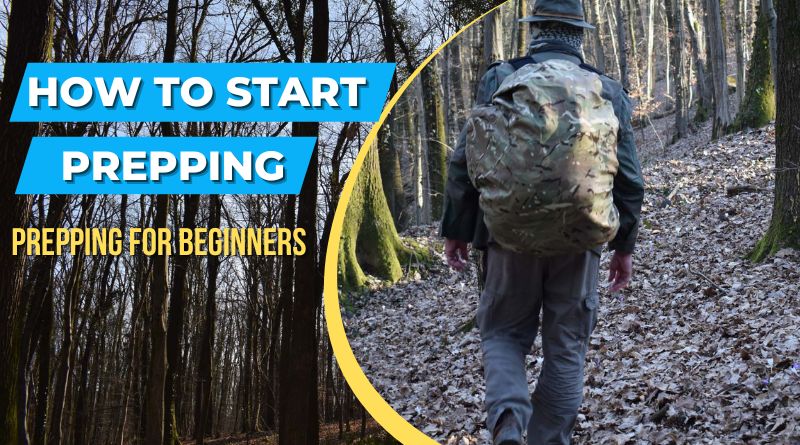What is Prepping And Who Are Preppers?
What is prepping? Well… Prepping is defined as preparing for something or preparing something. Who Are Preppers? The majority of people are preppers to some extent or another.
Preppers are people who plan for extenuating circumstances. These extenuating circumstances may range from stocking up a couple of weeks’ worth of food in case of a Covid quarantine to planning and stocking up for the end of the world as we know it.
Who Are Preppers?
The majority of people in the world are preppers to some extent or another even if they are unaware of it. People have been prepping in their own way for quite a while. Everyone makes plans for what could happen.
People who have a spare tire in their car are prepping in case of a flat tire.
People who buy health insurance are prepping in case of medical needs.
Even savings in a bank are people who are prepping for unforeseen financial needs.
Preppers just take this a little further, they prepare themselves for all sorts of scenarios. They do this using a variety of methods, some of which include:
Planning
Learning skills
Stockpiling resources
Preparing a Bug-out location
Homesteading
Living off the grid
What Do Preppers Prep For?
Most preppers prep for possible disasters common to their social/political/geographic location. People who live in earthquake-prone areas prep for earthquakes, people who live in flood-prone areas prep for floods, etc.
A relatively smaller percentage of preppers prepare themselves for a diverse range of scenarios that they feel are a threat, such as Doomsday, nuclear fallout, total collapse of society and law, etc.
Prepping Is A Spectrum
Prepping is not an all-encompassing term, there are levels of prepping from a simple 72-hour bug-out bag to a bunker with years worth of stores. Some people may feel that 72 hours of prepping is sufficient, while others feel that long-term preparedness is the path to take.
Whatever period of time or scenario has been prepped for. Preppers have made a conscious decision to prepare for a disruption in their way of life.
How Long Do Preppers Prep For?
Even without prepping, most people will have sufficient resources at home to endure a few days in the event that there is a supply chain, power, gas, or water disruption. Longer than that and things will start to get a little tricky.
72 Hours
Most homes can endure for 72 hours and require barely any preparation, with a well-stocked bug-out bag, surpassing the 72-hour mark is a breeze. For an idea of what goes into a 72-hour bug-out bag check out the Ultimate Free Bug-Out Bag Checklist.

Prepping For 1 Month
Storing 30 days worth of shopping may seem like a daunting task, but it is surprisingly easy to reach this level of prepping. All that is required is a PLAN, a little bit of space, some careful shopping, and a desire to be prepared. Most preppers who have reached the 1-month mark, are on their way to prepping for longer periods.
Prepping for 6 Months Or More
Prepping for 6 months or more is a tipping point. And people who reach this level of prepping have explored (if not implemented) alternative water sources such as rain capture, wells, hand pumps, sustainable food sources, bugging out, homesteading, and mayhaps even off-grid living.
At this level of prepping, storage space starts to become a concern, sustainable living starts to look more attractive, and a BOL (bugout location is usually in the works).
Sustainable Living
Some preppers have decided that going back to the old ways of sustainable living is the best way to prep. Sustainable living is a major lifestyle change, and is usually reserved for the most dedicated of preppers. The two most common ways are homesteading or off-grid living. While these two ways are very similar, they are not quite the same. They are both becoming increasingly popular.
Homesteading
Homesteading is about self-sufficiency, the main difference between homesteading and farming is that the farmers aim to profit from farming, while a homesteaders is to be self-sufficient, and while many homesteaders do sell their access produce, that is usually not their main aim.
Living Off-Grid
The main difference between homesteading and off-grid living is the reliance on utilities. Off-grid means just that, a total disconnect from all utilities and the public grid, so electricity will be provided by solar panels, generators, wind turbines or maybe even doing without. Water will be from wells, rivers, water catchments, or hand pumps, sewage will be outhouses or septic tanks. People who live off-grid grow their own food, rear their own live-stock.
Off-grid living means being wholly self-sufficient.
So while not all homesteaders live off-grid, all off-grid preppers are homesteaders.
Myth About Preppers
Media and the voices of a minority group of vocal preppers have given rise to several misconceptions about preppers. Some of these are :
Preppers prepare for the end of the world
While a minority of preppers do prepare for the end of the world (WW3, Zombie Apocalypse, Alien Invasion), most prepare for a variety of scenarios such as natural disasters, financial crises, or social unrest.
Preppers all have large stockpiles of weapons
Preppers with an arsenal is one of the most common myths. Inspired by how preppers are represented in movies and media.
There are preppers all over the world, in many of these countries gun laws are quite strict, which means they do not have stockpiles of weapons. Many preppers do have weapons for hunting. But that is a far cry from the massed stockpile that people think preppers have.
Preppers are political extremists
A small minority of preppers are political extremists, the ones who are, are very vocal, they advertise their views of the government, political parties, etc, loudly. Giving rise to the myth that a majority of preppers are all of the same minds.
Preppers are conspiracy theorists
As with the other misconceptions, this is mostly driven by the media and the fact that conspiracy theorists tend to be more vocal about their opinions. Usually, they go hand in hand with the political extremists.
Modern Day Preppers
Modern-day preppers come from all walks of life, the internet has opened people’s eyes to just how fragile our way of life is. Before the rise of the internet, international news was slow to arrive at our doorsteps, statistics of natural disasters, political upheavals, what is happening around us was a trickle of information compared to present day.
The internet has opened a fount of information for people to learn about prepping. Where to start, how to start stocking up, how to build a community of people who will be prepared, etc.
There is no denying that prepping is on the rise, recent events like the pandemic have made people start prepping for supply chain disruptions and have made many take an active interest in longer-term prepping

Lost Prepper Skills
People have been prepping for ages, in the past homesteading and living off the grid was a way of life for a substantial part of the world’s population. Of course, at that time there was no grid, so that is hardly surprising.
Storing up for the winter, or lean times was a matter of survival.
In the distant past, until the rise of supermarkets and prepackaged foods, people often preserved foods at home, salting, fermenting, pickling, smoking, canning, etc were common. As prepackaged foods become readily available to the public, most lost these essential skills.
Growing their own food, foraging, hunting, fishing, and husbandry, were all common skills that many people knew.
Of course, some people still practice these skills, but the majority of these people do so as a hobby. A few even manage to make a living out of it.
Prepping In The Future
With recent world events, the demographics of people who have started prepping are more diverse than it has been for decades. The Masses are prepping in droves, even if they don’t know it, since the pandemic, people have been keeping larger stores of essential household items.
No one knows what the future holds, but those who have a plan, are prepped and work towards being self-reliant. They will have a much brighter future than those who are unprepared.
